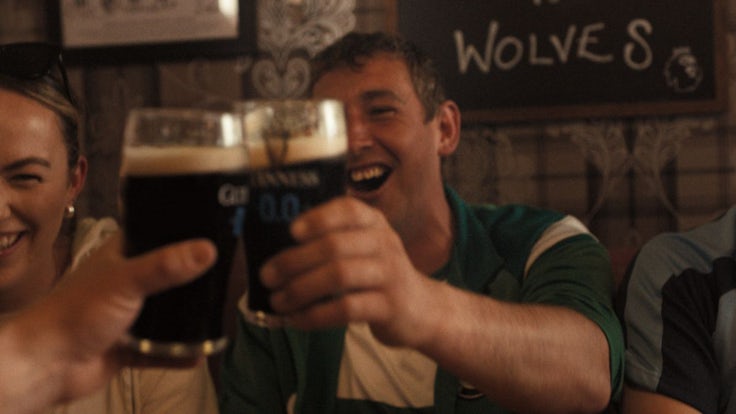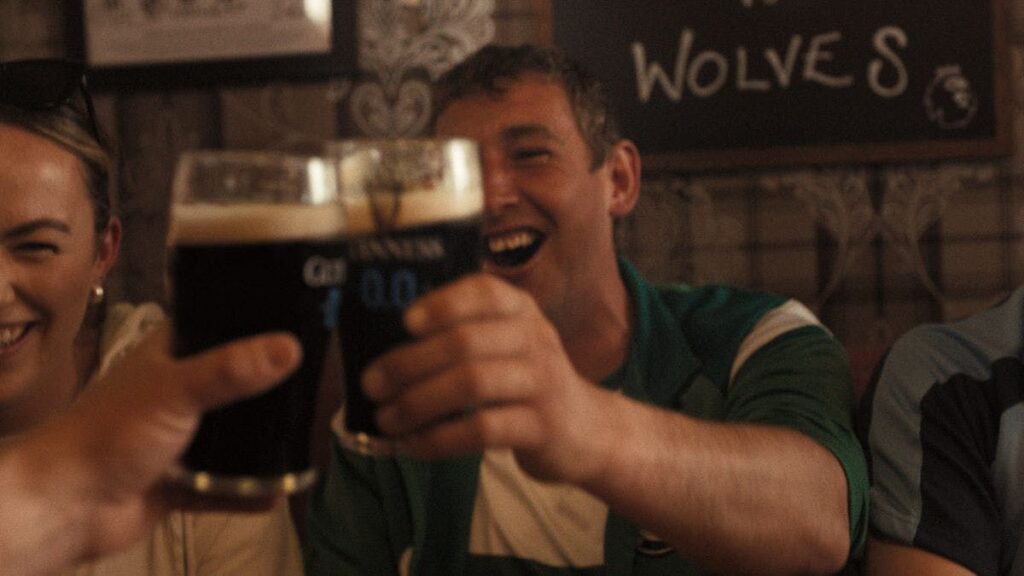Around one in ten pints sold in Great Britain is now a Guinness, with its parent company hailing brand-building, its Premier League sponsorship and 0.0 as key components in another strong period of growth.

Guinness was the standout performer for parent company Diageo in the UK and Europe in the first half of its fiscal year, with the stout’s sales offsetting declines in its spirits brands.
In Great Britain, Diageo, which owns spirits brands including Johnnie Walker, Tanqueray and Baileys, reported that its net sales grew by 2% in the first half of its financial year, which ended 31 December 2024. This sales growth came despite a 6% net sales decline in the company’s spirit portfolio in Britain, which it cited as being due to “overall category weakness”.
Around one in 10 pints sold in Great Britain is now a Guinness, the company told investors today (4 February), citing data from Nielsen/CGA. The growth of the brand in the UK came despite some supply constraints during the half, with shortages leading to reports of pubs “rationing” the beer.
The brand is also the number one beer brand in the country, it noted, again citing the same data source. In its home market of Ireland it was a similar success story, with Guinness the number one alcohol brand in the country.
‘Global brand, local heartbeat’: Guinness on why its Premier League tie-up will deliver ‘tangible growth’
Diageo hailed the impact of its brand-building work on Guinness and said the beer is “benefitting from strong consumer take up around the football consumption occasion through the English Premier League partnership”. The current Premier League season is Guinness’s first as the official beer of the competition.
Speaking to Marketing Week last year following the announcement of the sponsorship, Guinness marketing director Anna McDonald described the deal as a “tangible growth opportunity” for the beer in tying it closer together with the football drinking occasion.
The sponsorship has resonated beyond the UK and Ireland, with Diageo flagging the “impressive traction” the partnership achieved in markets including North America, China and Australia.
Across the globe, Guinness grew its organic net sales by 17%, well above Diageo’s cross-portfolio growth figure, which was just 1%. Guinness has now been growing by double digits for eight consecutive quarters. It grew volumes by 16% in the half.
Last month, Diageo quashed speculation that it would be selling the stout brand, saying it had “no intention” of doing so.
Doubling investment in 0.0
One of the key levers of Guinness’s growth in recent years has been its non-alcoholic variant, Guinness 0.0. Guinness 0.0 now represents 12% of the brand’s net sales in Great Britain, Diageo reported. In Europe, its net sales almost doubled in the six months ended 31 December.
Diageo highlighted physical availability as a key tentpole in the growth of Guinness 0.0. The beer is now in 22,000 venues in Great Britain, up from 13,000 in the same period last year. The company sees more headroom in terms of driving growth for the 0.0 brand, and is now doubling its original investment in the beer.
Speaking to investors, CEO Debra Crew described Diageo as “absolutely the leader” in non-alcoholic beverages with Guinness 0.0 along with other offerings including Captain Morgan’s 0.0 being a “huge driver” of growth in Europe.


